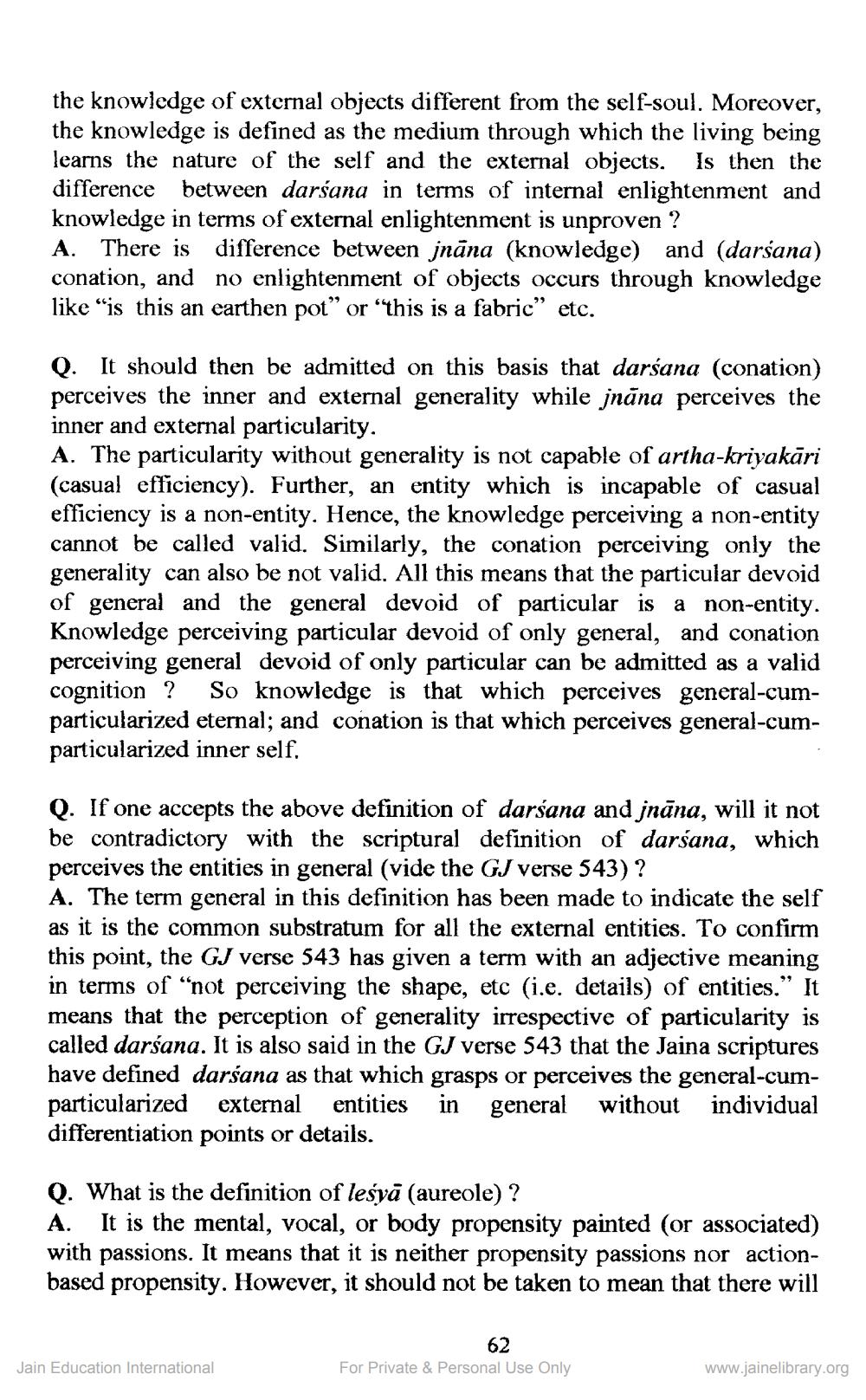________________
the knowledge of external objects different from the self-soul. Moreover, the knowledge is defined as the medium through which the living being learns the nature of the self and the external objects. Is then the difference between darśana in terms of internal enlightenment and knowledge in terms of external enlightenment is unproven? A. There is difference between jnāna (knowledge) and (darsana) conation, and no enlightenment of objects occurs through knowledge like “is this an earthen pot" or 'this is a fabric” etc.
Q. It should then be admitted on this basis that darśana (conation) perceives the inner and external generality while jnāna perceives the inner and external particularity. A. The particularity without generality is not capable of artha-kriyakāri (casual efficiency). Further, an entity which is incapable of casual efficiency is a non-entity. Hence, the knowledge perceiving a non-entity cannot be called valid. Similarly, the conation perceiving only the generality can also be not valid. All this means that the particular devoid of general and the general devoid of particular is a non-entity. Knowledge perceiving particular devoid of only general, and conation perceiving general devoid of only particular can be admitted as a valid cognition ? So knowledge is that which perceives general-cumparticularized eternal; and conation is that which perceives general-cumparticularized inner self,
Q. If one accepts the above definition of darśana and jnāna, will it not be contradictory with the scriptural definition of darsana, which perceives the entities in general (vide the GJ verse 543)? A. The term general in this definition has been made to indicate the self as it is the common substratum for all the external entities. To confirm this point, the GJ verse 543 has given a term with an adjective meaning in terms of “not perceiving the shape, etc (i.e. details) of entities." It means that the perception of generality irrespective of particularity is called darśana. It is also said in the GJ verse 543 that the Jaina scriptures have defined darśana as that which grasps or perceives the general-cumparticularized external entities in general without individual differentiation points or details.
Q. What is the definition of lesyā (aureole) ? A. It is the mental, vocal, or body propensity painted (or associated) with passions. It means that it is neither propensity passions nor actionbased propensity. However, it should not be taken to mean that there will
62
Jain Education International
For Private & Personal Use Only
www.jainelibrary.org




